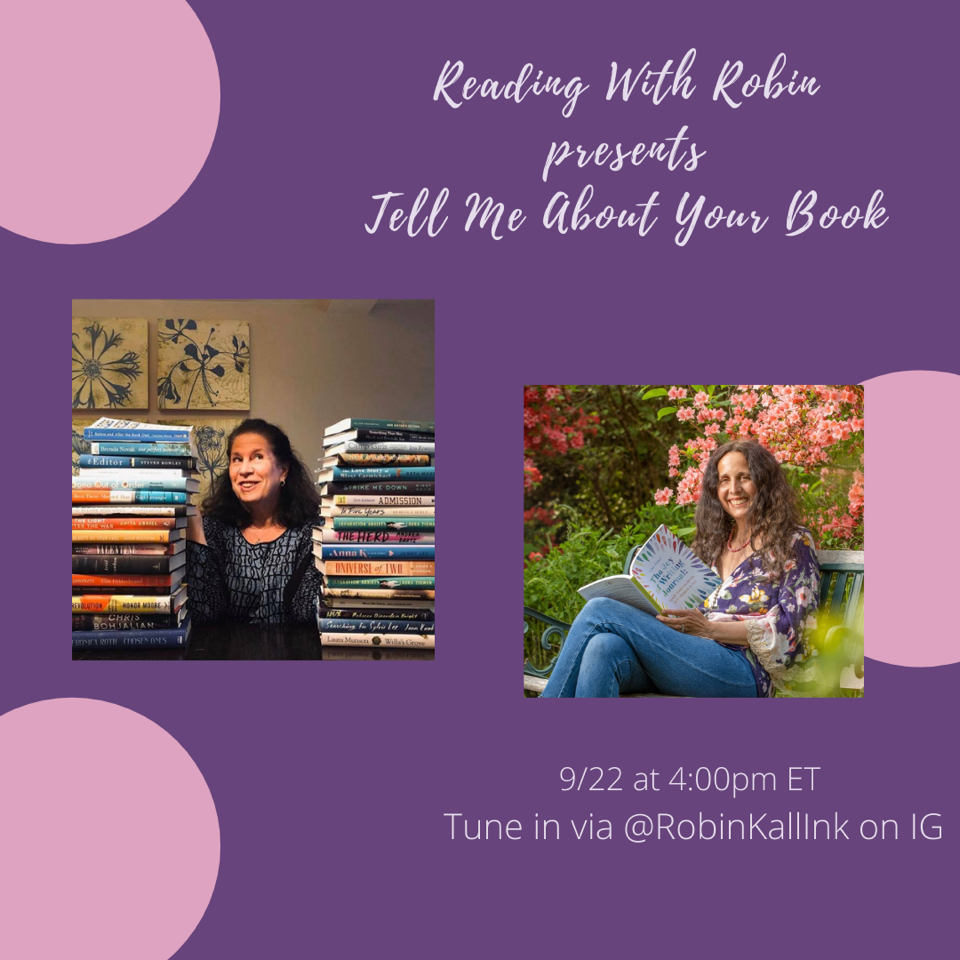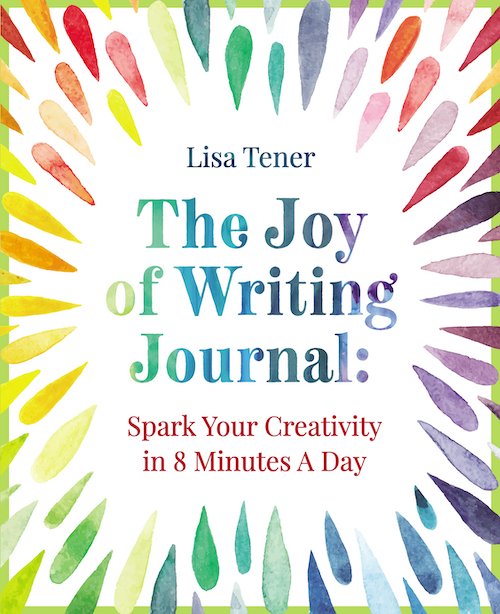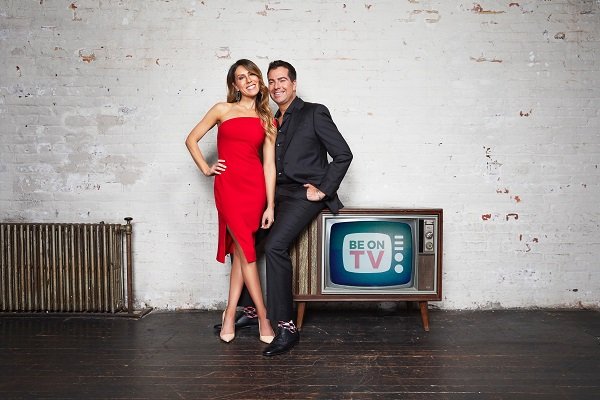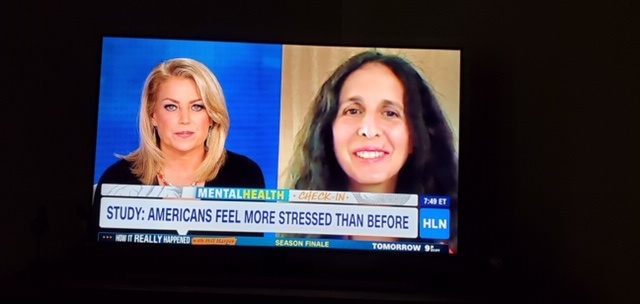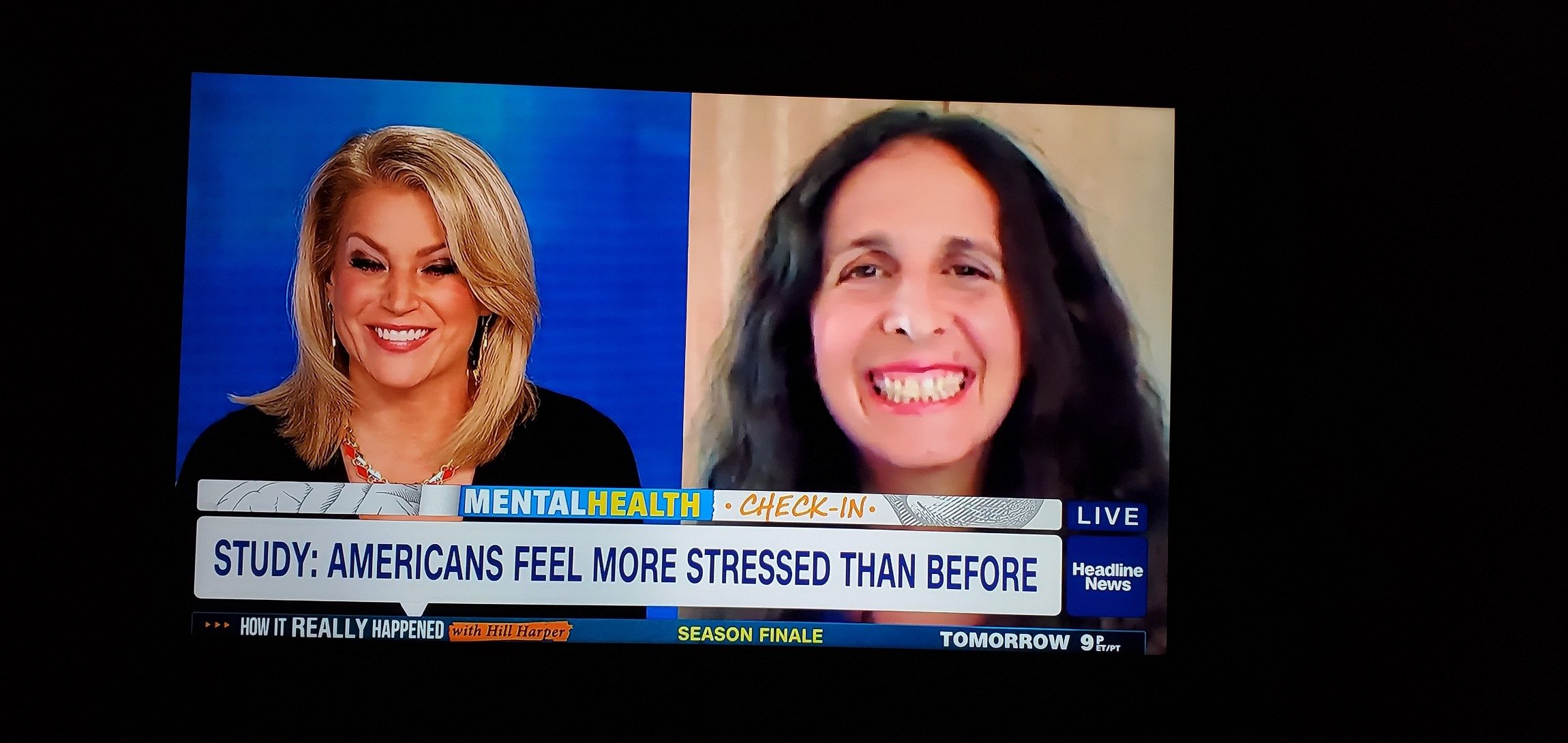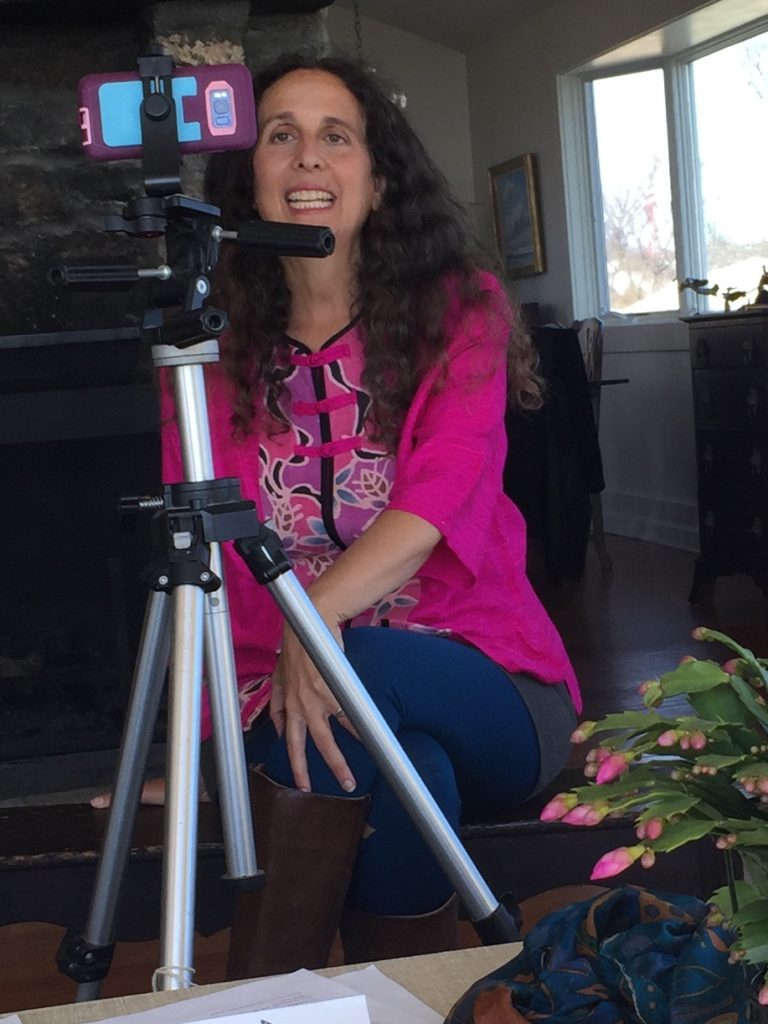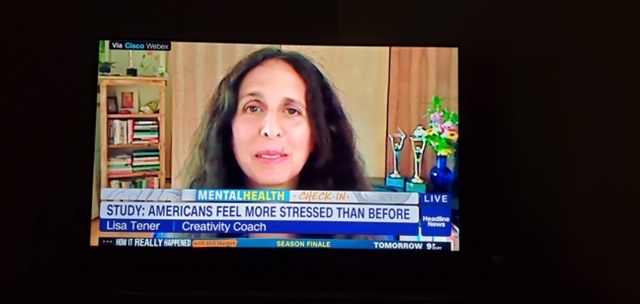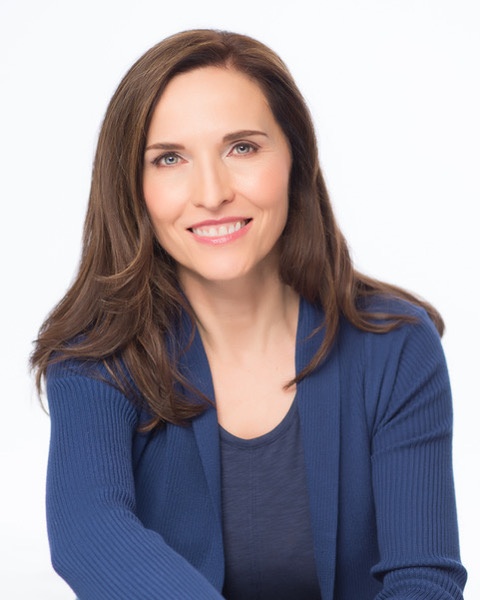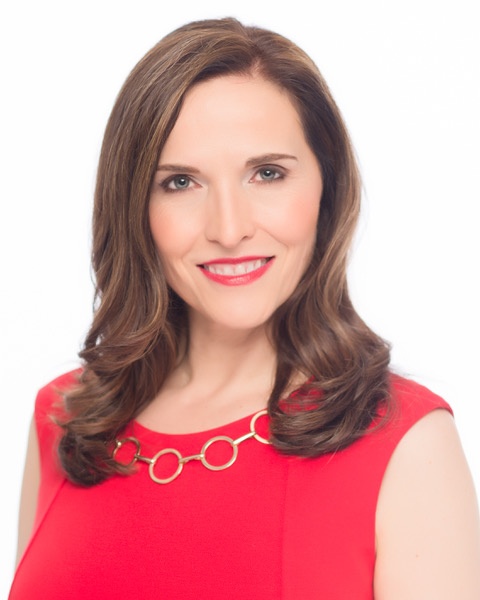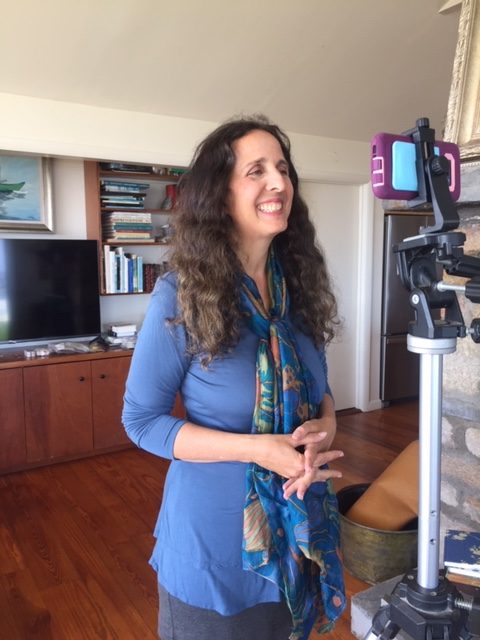The Authority Advantage: Building Thought Leadership Focused on Impact, Not Ego. An interview with Rusty Shelton
To say that Rusty Shelton was influential in my journey as a book coach would be an understatement. Rusty has to be the most influential person in elevating my entrepreneurial journey, offering me life-changing opportunities and modeling service-oriented leadership. I’m thrilled to share this interview for Rusty’s third book, The Authority Advantage: Building Thought Leadership Focused on Impact, Not Ego, for the many ways Rusty may influence your journey as an author/leader/entrepreneur/person.
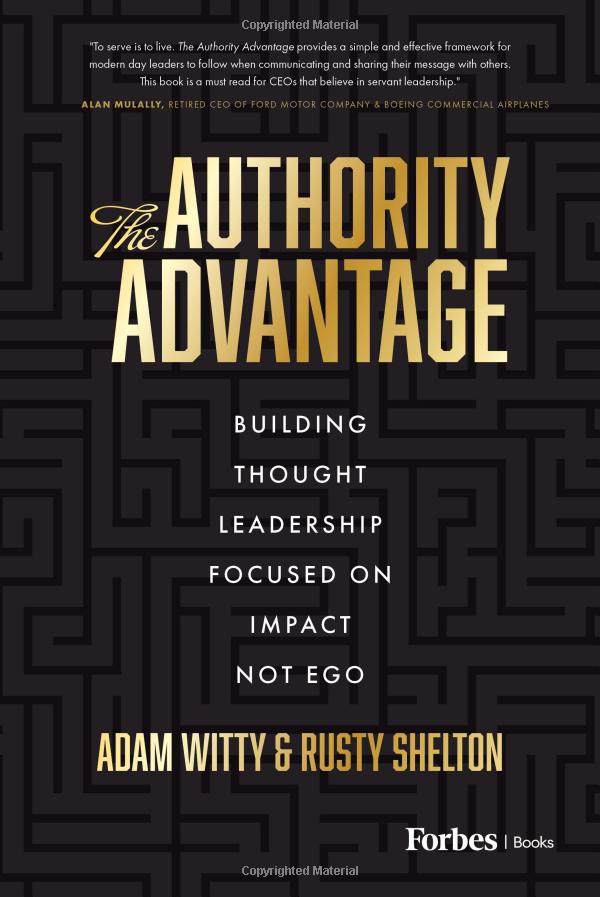
I read this book cover to cover in a couple of hours this morning (well, not the morning this was published, but the morning I came up with my questions for Rusty). Not only did the book remind me of some important things I’ve learned from Rusty over the years, but I also learned a few new gems. I’m super excited about what you’ll learn today from Rusty about thought leadership, authorship, finding your readers and serving them.
Lisa: Rusty, I met you two decades ago when my first book was about to be published by Health Communications. Your approach to PR was so different from the other PR professionals my co-authors and I interviewed. You provided a customized plan versus the boilerplate templates others provided. And you got our book–our vision and our mission.
It was no contest when we decided whom to hire, and you and your team truly delivered–CNN Headline News, PBS TV, ESPN, Glamour Magazine, tons of regional and local interviews and articles, and the list goes on. How you approached us as clients is a case study of the service-driven mindset that you teach in The Authority Advantage.
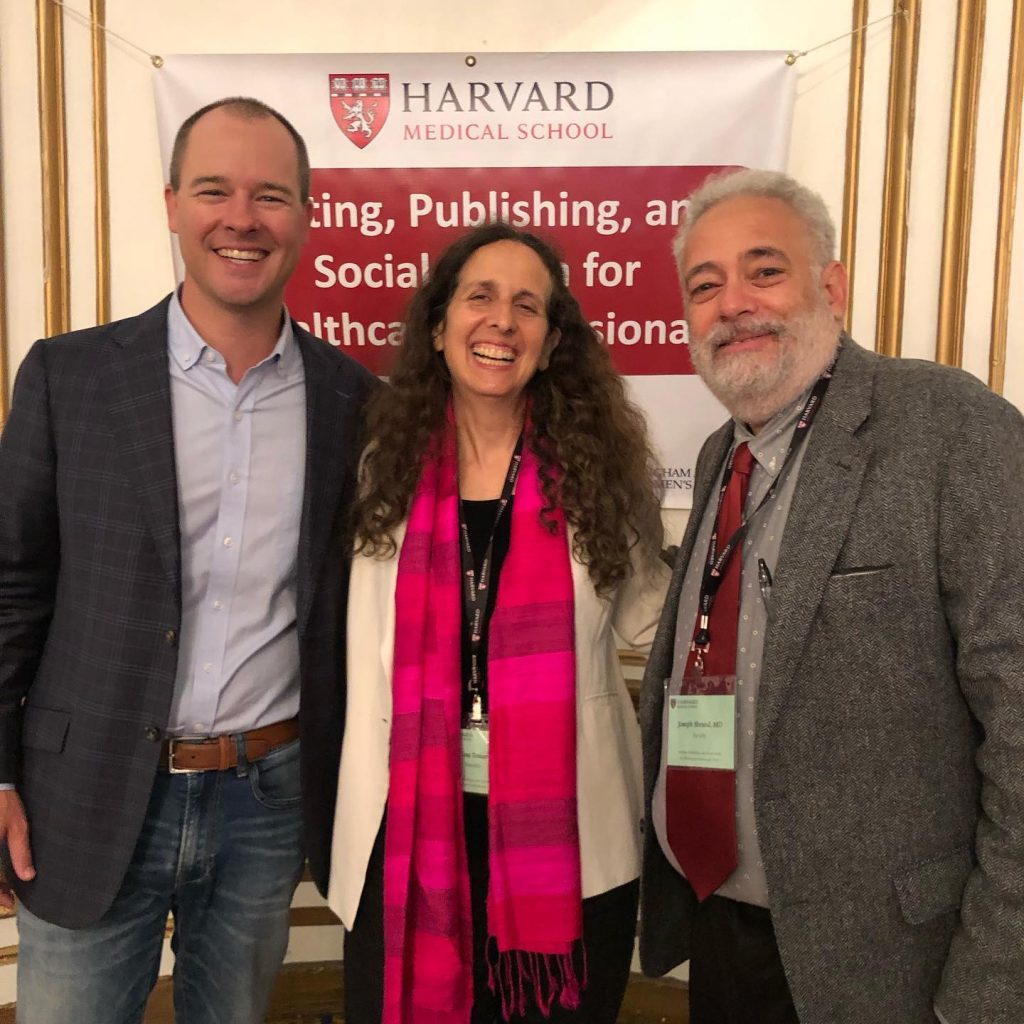
Does a service mindset always come naturally to you, or is this something you also have to work at? If so, how do you shift from the ego to the service mindset when you’re writing or speaking in front of an audience and the ego temporarily takes over?
Rusty: I can’t believe it’s been two decades, Lisa!!! I think that service mindset was trained in me by my parents—particularly my mom, who was a second-grade teacher for 30 years. I watched her have a service mindset with kids and parents for years, and it came so naturally to her that I think it’s one of those things that set me up well for having a service business.
Help Others Have a Lightbulb Moment
As you referenced, my favorite thing to do is teach, and speaking is the most fun and rewarding format for me. I certainly get plenty of gratification and fulfillment from the stage. What I love most about it is trying to help others have a lightbulb moment that can help them change the trajectory of their career and life and help them help others at scale as a result.
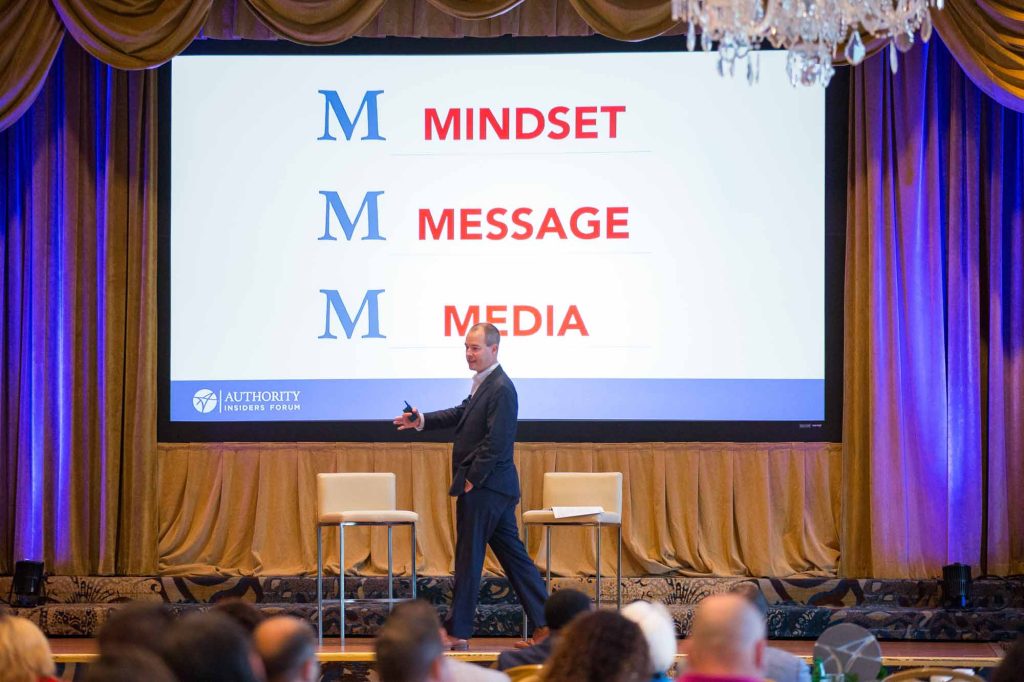
Watch Out for the Ego
On the ego front, one of my least favorite things is being in the audience and listening to a speaker on stage stroking their ego—it’s not only a personal pet peeve but also probably the biggest turnoff that exists for an audience. It amazes me how many speakers still do this, so I try to go out of my way to avoid it, and I always feel like vulnerability/self-deprecation is the biggest antidote for a speaker.
I sometimes have to check myself when I’m writing to make sure the tone comes across the right way—I think it’s a bit easier for someone to misinterpret text as being ego-driven, and I have to watch for that occasionally.
Lisa: In The Authority Advantage: Building Thought Leadership Focused on Impact, Not Ego, you and co-author Adam Witty speak of a growing distrust of institutions and organizations. What does this shift mean for authors?
Trust in Institutions is at an All-time Low
Rusty: This is a crucial thing to understand about our current environment—according to a 2022 study from Gallup, trust in institutions is at an all-time low.
This study reflects a trend that has been underway for some time, but COVID made it a runaway train.
Communicate as a Mission-driven Thought Leader
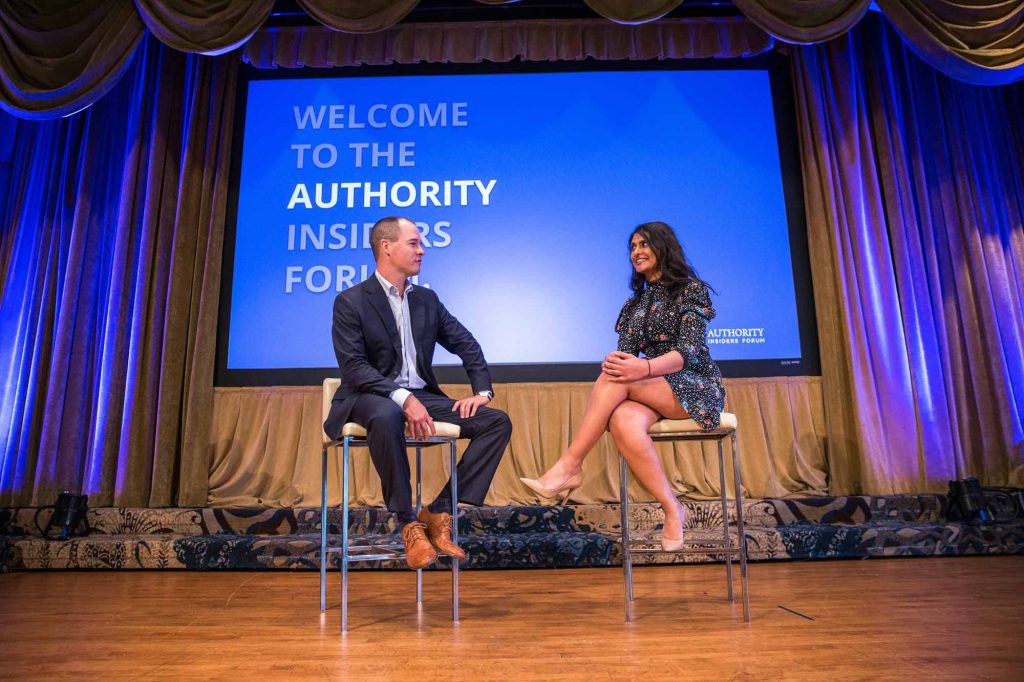
What this means for authors is that if you are leading with a book title, business name or other “corporate” brand, you are making it much harder on yourself to build trust with your audience. For example, if your website is built around your book vs. you as an author/mission-driven thought leader, or if your social media accounts are built around the book title as the brand, my guard is up—I’m expecting you’re trying to sell me a book. So, conversely, if you’re leading as a mission-driven thought leader with something to teach (your brand is built around you), you accelerate the speed of trust with an increasingly skeptical audience.
Put simply—create a brand and communicate as a mission-driven thought leader with something to teach rather than an author with something to sell.
Lisa: You say that The Authority Advantage is written for “humble, servant-minded leaders” focused on the “good of their customers, teams, and partners.”
In your experience, what challenges do these types of individuals need to overcome when writing, publishing and promoting a book?
Build Thought Leadership Focused on Impact, not Ego
Rusty: This is a great question and was a large part of our motivation to write this book.
In my experience, humble, servant-minded leaders are allergic to “personal branding” or “thought leadership.” This is particularly true in the medical community.
The reason is a good one—for many leaders, when they hear those phrases, their minds immediately go to people building ego-driven, “hey-look-at-me” kinds of brands.
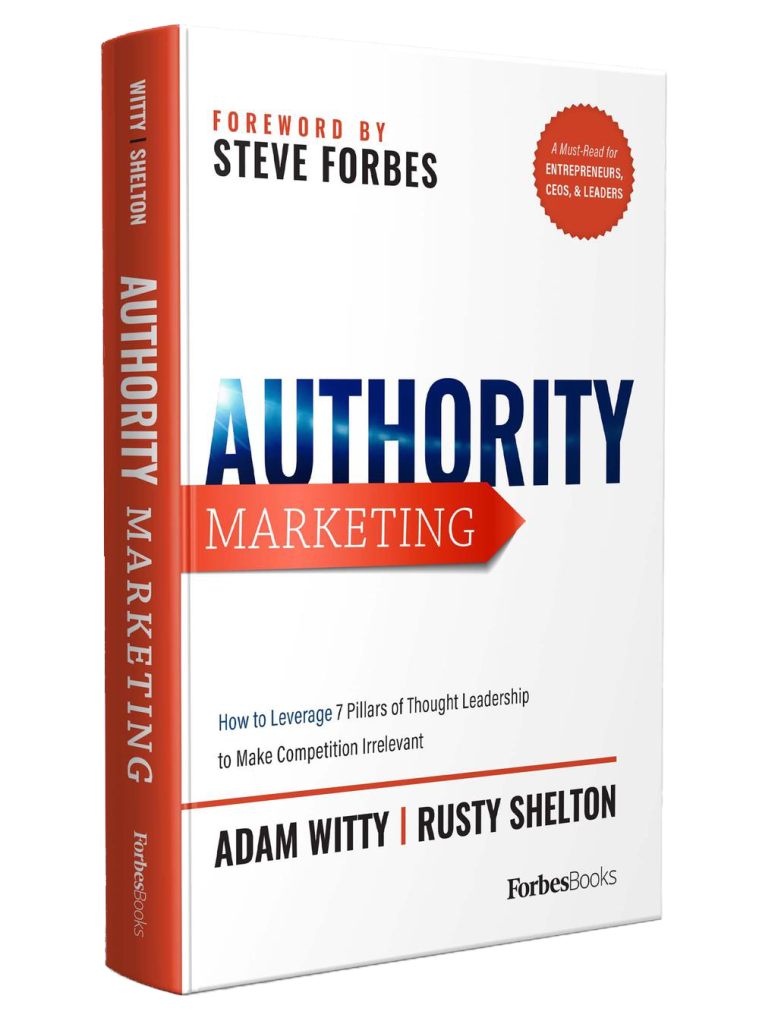
When we encourage leaders to create an Authority Advantage by building thought leadership focused on impact, not ego, we want them to do the opposite of that and instead understand they must be the messenger, not the message.
In other words, we must get them over the knee-jerk reaction to growing a brand and help them understand that if they are trying to communicate their message through their company, nonprofit, institution or even book title, it will take more money, more time and be much harder to build trust with their target audience than if the message is coming from them—someone their audience sees as authentic, accomplished and mission-driven.
Shift From a Perception of Ego to the Reality of Impact
Rusty: In my experience across more than 20 years of helping thought leaders make an impact and grow audiences, this mental shift from a perception of ego to the reality of impact (when done correctly) empowers a lot of lives to be changed (including, in many cases, the thought leader themselves).
The Importance of a Personal Brand
Lisa: I hear from many authors who struggle to write more about themselves and reveal their inner journeys in their books. They often say, “The book is about X; it’s not about me.” In The Authority Advantage: Building Thought Leadership Focused on Impact, Not Ego, you mention the importance of a personal brand. Can you say more about what a personal brand is and isn’t and why it’s so crucial? Can you help those reluctant folks understand what they need to bring to their writing and promotion and why?
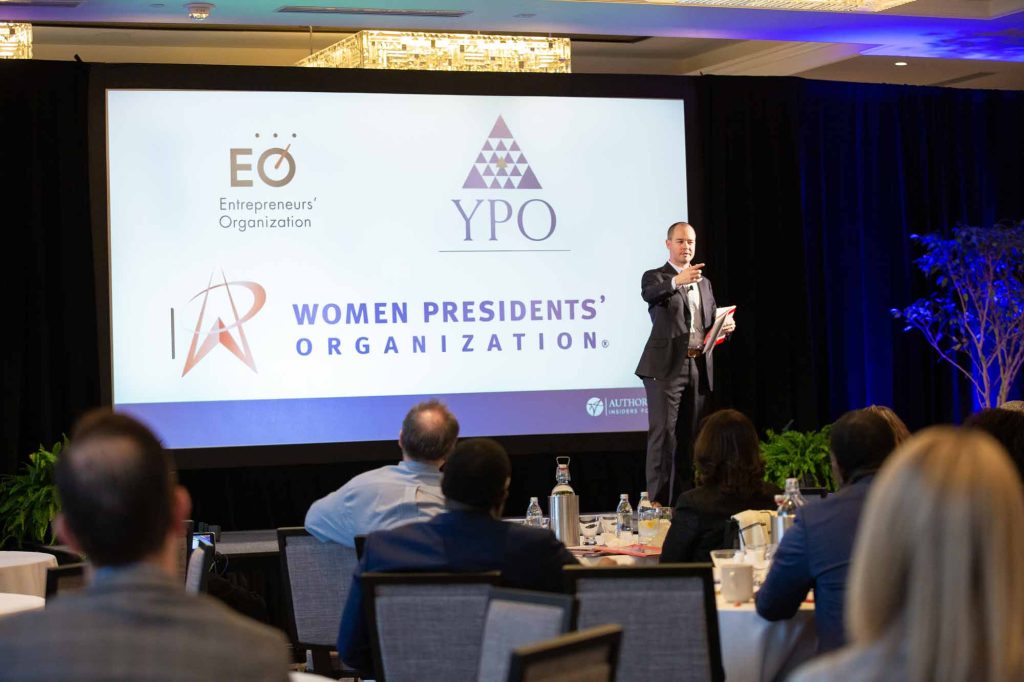
Rusty: You’re hearing the same thing I hear from many authors—”This is about the book and the message; it’s not about me.”
My response is simple: “I completely agree with you, BUT you must be the messenger if you want to get the message to people that need to hear it.”
Be the Messenger, Not the Message
This goes back to a previous answer—I want to encourage authors to be the messenger, not the message. Suppose I hear from a company, book title or institution. In that case, my guard is up (what’s their agenda?) vs. if I hear a physician on a podcast with an authentic, mission-driven message (ideally with some personality thrown in), I’m leaning in to learn from them and that changes everything about their ability to reach people.
The other key thing to remember is that they have a brand right now, whether a leader likes it or not. In today’s environment, the first place most readers, journalists, potential clients, potential patients, potential team members, heck, even neighbors, will interact with you won’t be in person—it will be online, starting with page one of a Google search and then hopefully leading to your author website, LinkedIn profile or another hub online.
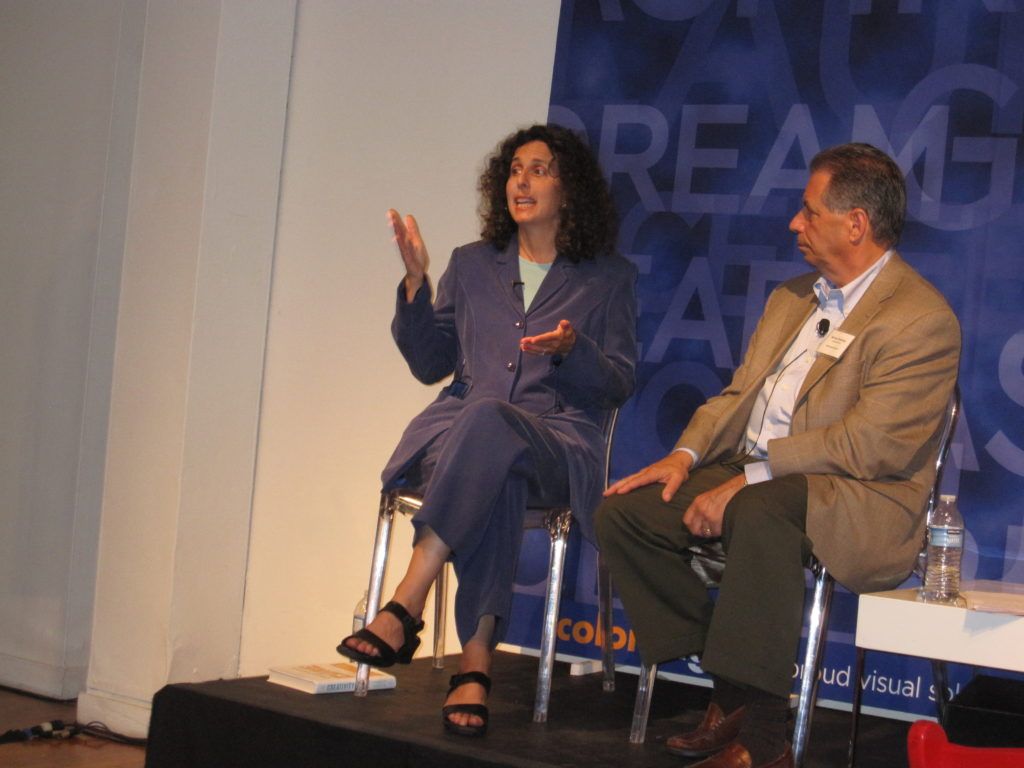
The Initial Authority Image is Created Whether you Like it or Not
Rusty: If that’s the case and that image will be created regardless, don’t you want to own it and be intentional about what it is?
Of course you do, and our book shows leaders, physicians, authors and others how to create one that is authentic and mission-driven while also building trust with an audience that doesn’t yet know you.
Having Something to Teach versus Something to Sell
Lisa: In The Authority Advantage you distinguish between having something to teach versus something to sell. How does that change how one markets a book and other programs or services?
Rusty: No one wants to be marketed or sold to, but we like buying things we believe can help us.
Give Value and Teach
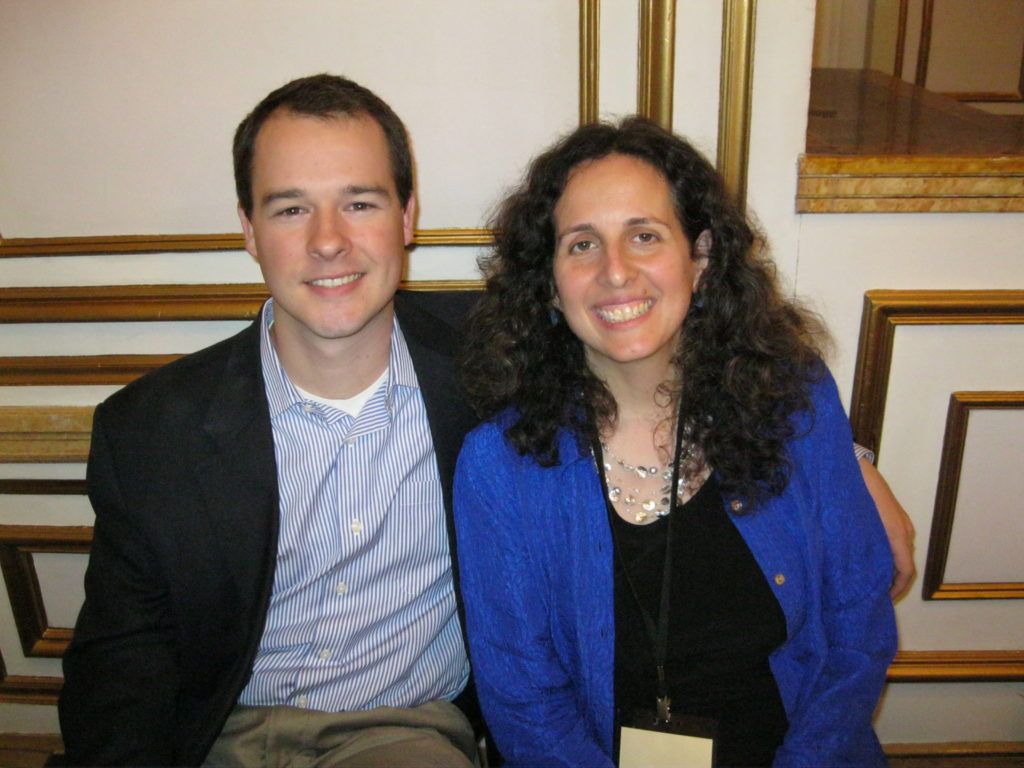
When authors or leaders market/pitch a book or other programs or services, they often cause their audience to recoil from that message. Still, if they begin by giving value and teaching, their audience is far more likely to ask for a next step that allows them to go deeper into the lesson they just learned.
This is a common mistake I see from well-meaning, would-be thought leaders who typically end up filling most of their content strategy with book- or product-focused content vs. teaching, curating and giving value as a way to be more of a magnet for their audience.
Identify What Authority Comes From Different Media Types
Lisa: You mention the shift from corporate media to micromedia. What are some tips you would give our readers to identify what media to focus on, and what are you seeing that works best for actual book sales versus followers?
Rusty: This is one of the significant shifts we zero in on in the book, and it offers some important lessons for authors and leaders on what value comes from different types of media.
Most authors, leaders and experts look for corporate media when considering PR (traditional TV, print and radio outlets like Forbes, the NY Times, etc.). However, there is undoubtedly tremendous value in getting coverage in these outlets.
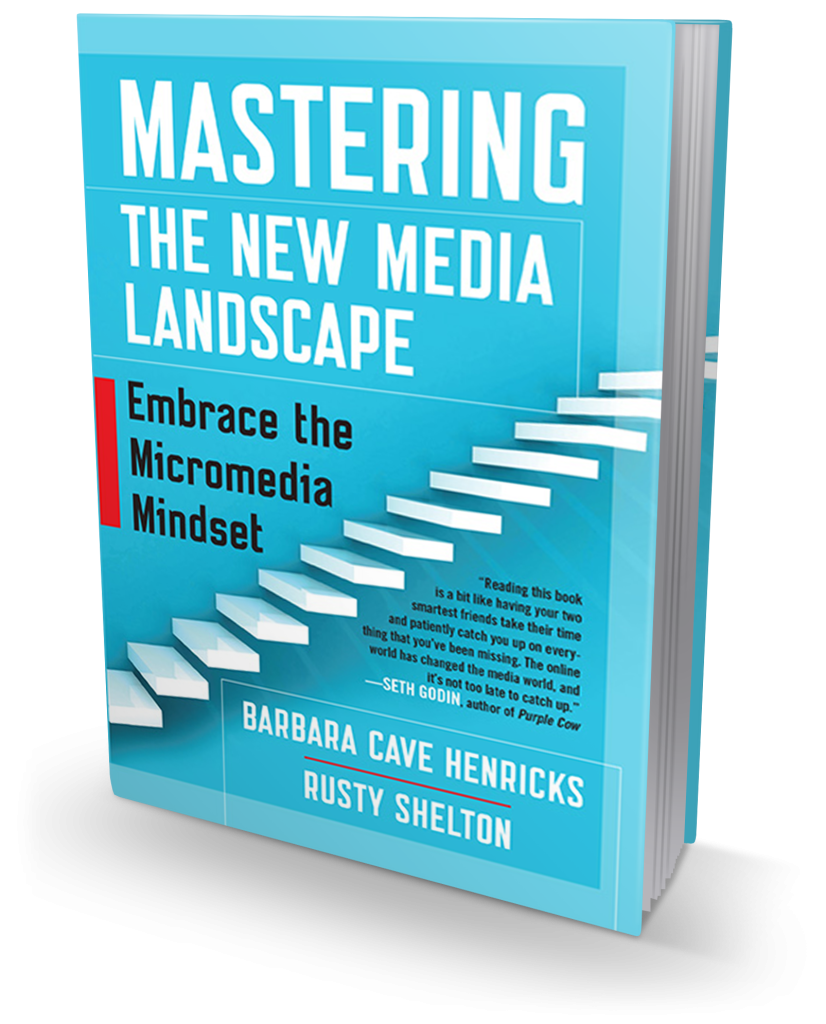
But the value this kind of coverage brings is less focused on selling books or growing followers and instead more focused on the ability to remarket those media hits across your website, in your bio and speaking materials moving forward. In other words, the value from that quote you got in the Wall Street Journal or the guest post you wrote for Forbes isn’t so much the immediate sales that may come from it but instead, the ability to showcase that media outlet logo on your website and in your bio to build what we call Authority-by-Association.
Build Trust For Yourself As The Thought Leader
Rusty: Listen to the introductions for most speakers or pay attention to bios for experts. For example, you’ll often hear, “She has been featured in Forbes, the Today Show, etc.” which builds trust for the expert because the audience may not know them, but their image is along for the ride with the image in the audience’s minds for Forbes and the Today Show which = TRUST.
Podcasts, Newsletters, Trade Publications and Other Niche Media
Rusty: Counterintuitively, to many of your readers, what drives the most results in lead flow, sales and follower growth is exposure in the right micromedia outlets, which includes podcasts, newsletters, trade publications and other niche media. Unfortunately, these less glamorous brands are much more targeted and often have more engaged audiences.

As a quick example, we enjoyed working with Sally Hogshead on the launch of several of her NY Times bestsellers. When we did the kick-off call for the campaign for her second book, How the World Sees You, she said, “I don’t need the major media on this one—I already have the logos from the previous campaign—I’m really interested in a micromedia-focused campaign because my data from the last campaign shows the lion’s share of the sales conversions and audience growth came from those media hits.”
While Sally already had the logos, most authors need a good PR firm to get them both media categories.
Common Author Website Problems
Lisa: What are the most common problems on an author’s website? For example, on a website for a therapist, coach, health professional, or self-help expert.
Rusty: I see several pretty common problems with websites for therapists, coaches, health professionals and authors but hands down, the most common problem I see is that the website leads with images that mean nothing to a visitor that doesn’t yet know the person behind the website.
Lisa: The trusty lotus flower, pile of rocks or beach landscape, yes! What to do instead?
Lead with Visuals that Connote Authority and Expertise

Rusty: Lead with visuals that put you in an environment that connotes Authority. For example, instead of a headshot or a white-coat photo, lead with a hero shot of you on stage speaking (ideally with a logo that your audience knows, trusts and respects visible).
In other words, you have to keep in mind that most people landing on your website don’t know you yet—so if you lead with images that don’t mean anything to them (your headshot, your corporate logo, stock photos, etc.) you are doing NOTHING to create a picture in their mind that inspires trust and helps them see you as an Authority with something to teach.
For example, if you have given grand rounds at Mayo or spoken at TEDx or your alma mater, lead with a picture where I can see that logo because what happens is crucial to creating the image I want you to—the website visitor may not know you. Still, they do have an image in their minds for someone on that stage next to that logo, and now your image is along for the ride with the image in their mind for “TEDx” or “USC” or whatever the brand may be.
Use Images that Show Your Authority Without Saying So
Rusty: Underneath that hero shot, showcase logos you know, trust and respect. For example, if you have done media in the past, give me a logo belt of media outlets featuring you. Or, if you have spoken in the past, give me a logo belt of places you have spoken.

Those images say what I don’t want you to say about yourself, which is: “She’s a top-of-her-category thought leader who wrote the book on the topic, is widely quoted by the media and regularly speaks,” which then allows you to do what you do best—teach!!!
This is the fine line every website should walk—on one side of the coin have the visuals say what you should never speak about yourself (I’m someone you can trust on this topic), and then on the other side, every single piece of your content strategy is entirely focused on teaching and giving value—mission-driven thought leadership.
But I’m not interested in what you have to teach until I know you’re the person to guide me on this topic.
Rules for Spreading Your Authority Message on Social Media
Lisa: In The Authority Advantage: Building Thought Leadership Focused on Impact, Not Ego, you and Adam Witty mention the importance of converting fans on rented media, such as social media platforms (where an author is vulnerable to changing algorithms), and inviting a more empowered relationship by bringing them to your owned media, your website, and asking them onto your email list. Please briefly share why this is important and how one might do it.
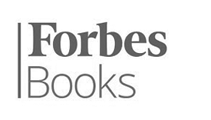
Rusty: This is a widespread mistake I see from authors—building huge audiences on social media and essentially leaving them there. To be clear, I want you to have as big an audience as possible on LinkedIn, Facebook, Twitter, etc., but the way to view that is that you’re essentially gathering an audience on “dirt” that LinkedIn or Facebook own. But, again, there is nothing wrong with having a great audience there. Still, you have to be crystal clear that you’re entirely accountable to LinkedIn’s or Facebook’s willingness to let you reach that audience that you’re “renting” on their real estate with your content.

We recommend that all messages that go out on either rented or earned media do two things:
- Overdeliver on value (obviously, you want to write the best article, give the best interview, shoot the best video, etc.)
- It would be best if you gave the audience you are reaching on real estate that Forbes, LinkedIn, a podcaster, or some other media outlet owns, an elegant reason to get out of their seat to follow you back to real estate that you own so you can extend your interaction with them.
Own Your Audience

Rusty: When you own your audience via an email list you have the leverage and a much more predictable way to reach them, which in 2023 is still converting at a higher rate via email than anything else.
Use a great lead magnet, like a quiz, assessment, white paper or other free download to convert audience members to your owned media (and give them value).
Lisa: You have done an amazing job with that strategy. You and I both worked with Dr. Craig Malkin, author of Rethinking Narcissism and you helped him develop The Narcissism Test which had over 165,000 people take, last I heard!
What is Working for Book Sales Today
Lisa: I picked up some tips from The Authority Advantage and realized it’s time to create a real logo. I also was surprised to learn that LinkedIn has a Creator mode. So, thank you for that—what else is working on LinkedIn?
In the book you tell a story about a former client who returned to Zilker Media to share that they wanted to focus solely on podcasts (as a guest) and newsletters because that consistently delivered them book sales and clients. While it was a nice credential to land top TV interviews, these did not result in book sales and clients or ROI like the more personal, niche and individualized strategies did. So what methods do you see that lead to book sales most effectively right now?
Rusty: We’re seeing a lot of success on LinkedIn right now with newsletters, which anyone with more than 2,000 connections or followers can create and send. The great thing about newsletters is that LinkedIn gives them a lot of organic reach and they are pushed out by a LinkedIn inbox and via an actual email that goes to the LinkedIn user.
Adding Events to Your Strategy
Lisa: As an expert in book promotion, what are you doing to get The Authority Advantage: Building Thought Leadership Focused on Impact, Not ego into the hands of readers?
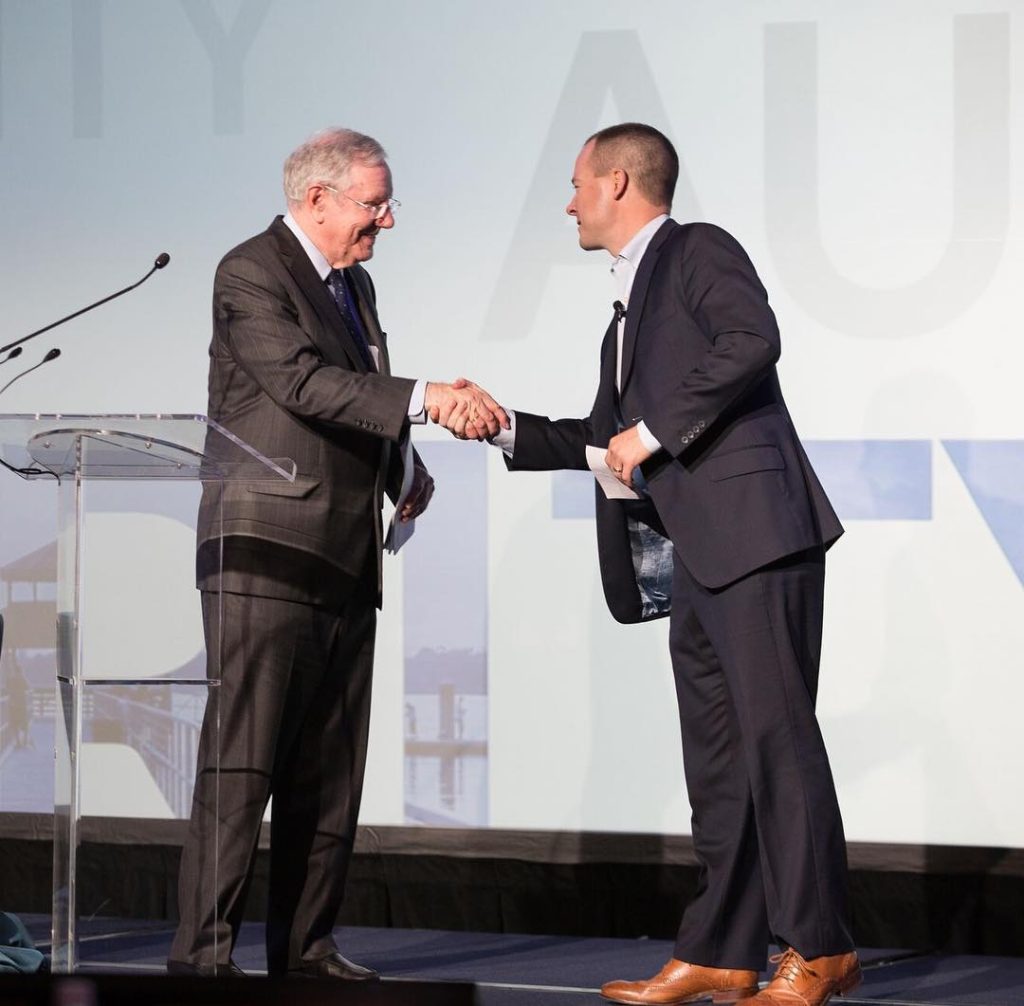
Rusty: We’re doing everything we discuss in the book—home base website, LinkedIn newsletter, assessment, PR, etc. but we’re also really leaning into events. Last week we had a launch party at Forbes on Fifth in NYC and hosted two panel discussions on the state of Authority building, one of which included Steve Forbes, and we’re hosting launch events in Charleston and Austin next week as well. We’re trying to teach at these events via panels and presentations rather than the typical cocktails and book signings, just as a way to deliver as much value as we can to attendees. A special bonus is that I love to do it!
About Rusty Shelton

Rusty Shelton first spoke at Harvard on the changing world of marketing and PR at the age of 23. He’s a Founding Partner and Chairman of Zilker Media, Senior Marketing Strategist at Forbes Books, an active keynote speaker, and the author of three books, including his latest, The Authority Advantage: Building Thought Leadership Focused on Impact, Not Ego, which is published by Forbes Books and co-authored with Adam Witty. Learn more about how Rusty can challenge your audience’s assumptions on thought leadership with a great keynote at www.RustyShelton.com.

